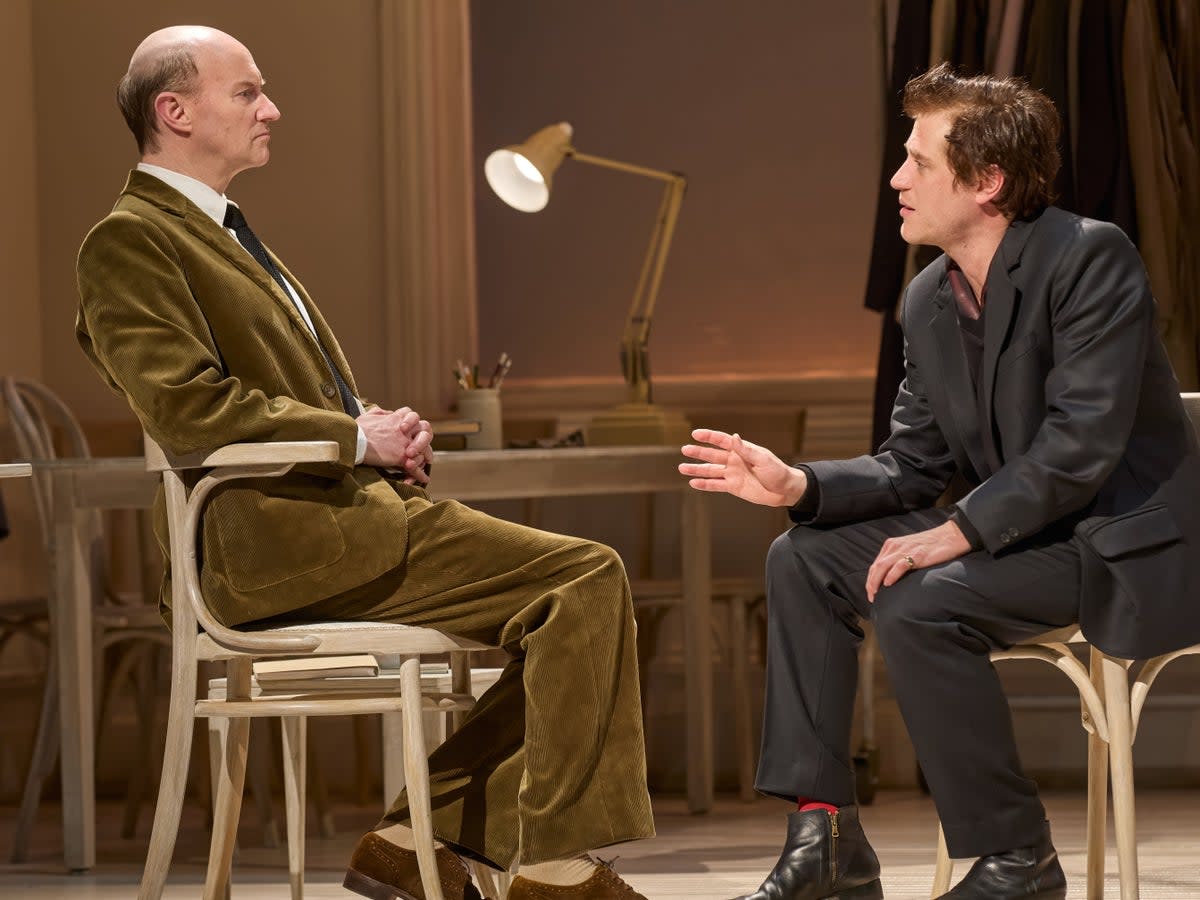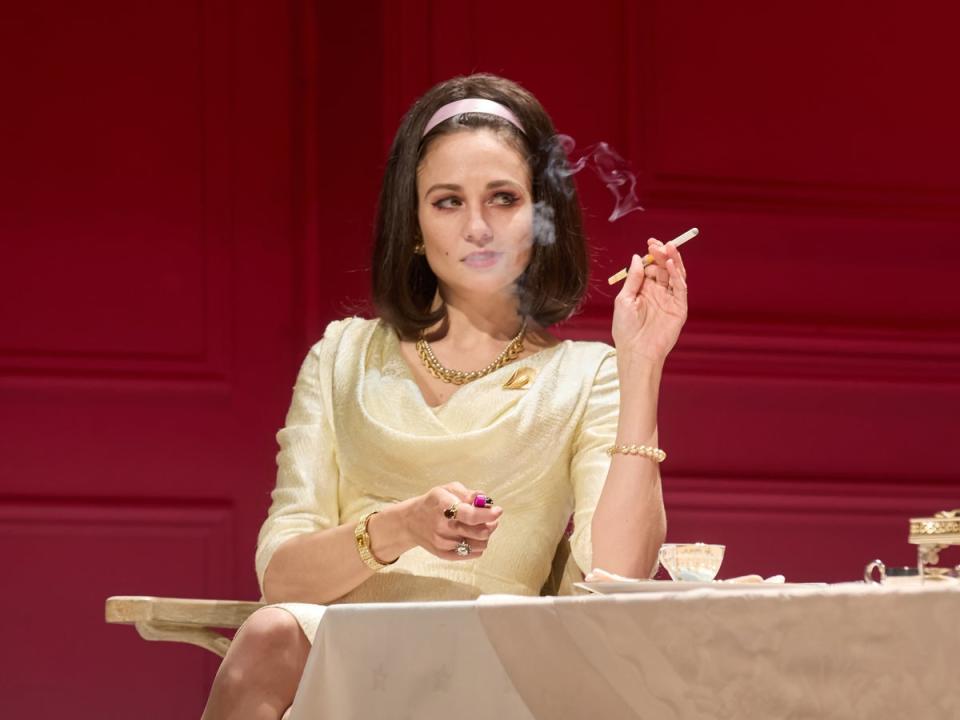The Motive and the Cue review: Burton/Gielgud luvvie-off will give you goosebumps

You’ll get goosebumps watching The Motive and the Cue at the National Theatre – it’s a side effect of being in the company of ghosts. Jack Thorne’s deeply affecting play, directed by Sam Mendes, recreates the rehearsals for John Gielgud’s 1964 Broadway production of Hamlet, in which Richard Burton played the Dane. Mark Gatiss and Johnny Flynn, as the two theatrical heroes slugging it out, summon their spirits. This play is about a lot of things – art, youth and ageing, sexuality, masculinity and celebrity – but perhaps most of all, it’s an ode to the idea that there’s beauty in the endeavour.
History tells us that Gielgud’s long-running production broke box-office records, but Burton’s Hamlet did not go on to become definitive. Based on two books by members of the company, Thorne’s play identifies the anxieties and frailties both men were bearing at the time. At 60, Gielgud felt himself becoming irrelevant, his acting style out of fashion; Burton, having just married Elizabeth Taylor (Tuppence Middleton), is one of the biggest stars in the world, drinking heavily, but craving immortality in art.
Hamlet, of course, can never escape from ghosts. He’s visited by an apparition of his father (something Daniel Day-Lewis thought he experienced literally at this theatre in 1989, causing him to flee the stage forever), but actors are also haunted by the many greats to have played the role before. Here, Burton happens to be directed by one of them; Gielgud’s performance, when he was just 25, became a touchstone. “Don’t you dare give me a line reading!” Burton often spits. Despite their various achievements, neither man feels they can escape from the shadow of “Larry” – Laurence Olivier, a statue of whom in the role stands outside the National’s building.
Your enjoyment of this show may depend on your tolerance for luvvie jokes and Shakespeare references. For theatre lovers, it is manna from heaven. But this is not just a heartfelt plea for the power of theatre, but a moving, often very funny, story about two generations teasing and provoking one another. In Es Devlin’s set, an airy, spacious, big-windowed recreation of a rehearsal room, Gielgud begins rehearsals with a big speech. Then Burton does a big speech. Gielgud gives a note. Burton argues against the note. Gielgud knows all the rhythms of Hamlet; Burton can’t hum the tune yet. Two big beasts with very different styles, they are locked in a power struggle from the start – and yet wonder why the play isn’t working.
This is all happening while newlywed Taylor sits in a plush apartment, barred from rehearsals. She’s a woman sidelined, even though she and the world know she’s too fabulous for that to be a long-term plan. It’s a difficult ask, trying to play a legend – Middleton’s performance is classy but she lacks the charisma to burst out of these scenes, and she and Flynn have little chemistry.

The scenes between Gielgud and Burton, though, really do fly. Funny, explosive badinage, in which Gielgud despairs of Burton’s “hunting calls”, simmer down into quieter moments of stark vulnerability. Despite their egos, the truth is that the pair are both fanboys, in awe of other legendary performers. Flynn’s attempt to do “the voice” at times slips into the dangerous territory of becoming “a voice”, but his performance is fascinating: he’s playing an actor playing a role he hasn’t yet got a reading on. Initially, he’s a hammy Hamlet, volatile and shouty, leaning on a caricature of a great actor. Later, he is exposed, weighed down by the pressure of genuinely trying to be great. But it’s Gatiss, as Gielgud, who owns this show. He deserves all the superlatives for a performance of restrained, quiet dignity, laced with sharp wit. In the show’s most extraordinary scene, after the battering experience of coaching a growling Burton through Hamlet’s “Speak the speech, I pray you” monologue, Gielgud sits, alone, and performs it to himself, poised and word perfect.
And then, in its final moments, Mendes’s graceful production conjures an image that captures why any actor wants to play this role, what they are trying to achieve, and why we want to watch it. It’s soft to say theatre is magical, but in this moment it really is: ghosts are truly summoned.
National Theatre, until 15 July


